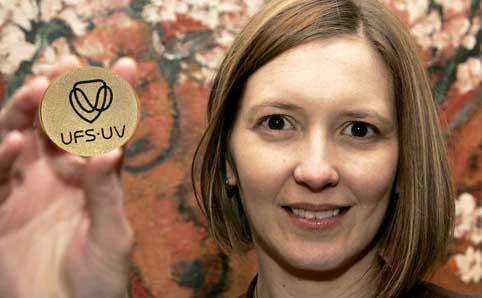Latest News Archive
Please select Category, Year, and then Month to display items
30 May 2025
|
Story Prof Mikateko Mathebula
|
Photo Supplied
 Pictured (from left to right): Prof Faith Mkwananzi, Dr Kapambwe Mwelwa, Prof Lochner Marais, Prof Chikumbutso Manthalu, and Prof Mikateko Mathebula.
Pictured (from left to right): Prof Faith Mkwananzi, Dr Kapambwe Mwelwa, Prof Lochner Marais, Prof Chikumbutso Manthalu, and Prof Mikateko Mathebula.
Through collaborative agreements with the University of Malawi and the University of Zambia, the University of the Free State (UFS) has established the Research Alliance for Higher Education in Africa (RAHEdA), a dynamic initiative aimed at enhancing research capacity and partnerships within Sub-Saharan Africa.
The collaborative agreements align with the UFS’s Vision 130 strategy in relation to internationalisation, emphasising the important role that intra-African mobility visits play in establishing relationships with universities on the continent. It also fosters knowledge exchange and engagement and allows for careful planning and strategy meetings.
“During these discussions, an ambitious but feasible roadmap was laid out for the next three to five years,” Prof Mkwananzi said. “These activities include online workshops for staff and postgraduate students at all partner institutions, and a new webinar series that focuses on profiling, advancing, and celebrating thought leaders, higher education scholars, and scholarship in Africa.”
The inaugural webinar was held on 21 May 2025. Speaker Prof Siseko Kumalo, Associate Professor at the University of Johannesburg’s Ali Mazrui Centre for Higher Education Studies, spoke on ‘Orality as the Bulwark of the Humanities?’, set the bar high for the webinar series through his compelling and original response to this timely question, as scholars around the world contemplate appropriate responses to the rise and influence of artificial intelligence in higher education teaching, learning, and assessment.
Funding to support RAHEdA has been generously provided by Prof Melanie Walker, Distinguished Professor and SARChI Chair in Higher Education and Human Development.
• For information on how to get involved and for updates on RAHEdA, please contact Prof Mikateko Mathebula at MathebulaM@ufs.ac.za
Computer Science lecturer receives Vice-Chancellor’s Award for teaching excellence
2011-11-11
 |
|
Dr. Liezel Nel from our Department of Computer Science.
Annually, many lecturers receive awards and recognition for their contribution to the UFS’s plans to accomplish outstanding academic performance.
Photo: Johan Roux
|
This year, the UFS presented its fourth awards function for outstanding learning and teaching.
At the awards function this past week, lecturers were rewarded for their outstanding teaching inputs at the UFS.
Dr Liezel Nel from our Department of Computer Science and Informatics was awarded the Vice-Chancellor’s award for her outstanding contribution to teaching and learning at the UFS.
The award, together with other awards presented to lecturers for outstanding teaching and learning, was instituted to encourage innovative teaching methods in departments in order to achieve outstanding academic results.
The Vice-Chancellor’s award is awarded to the lecturer who not only displays good leadership, but has also published research during the preceding year, with excellent knowledge and teaching skills in his/her discipline.
Dr Nel said she had realised over the past years that educators increasingly had more teaching resources at their disposal than before, which could be utilised to improve the teaching and learning experience of students.
“Therefore, I constantly renew my study material and the way in which I present the material. Currently I use a combined method, which includes electronic presentation by means of Blackboard, personal interaction and sessions, which enable the student to take ownership of the module.”